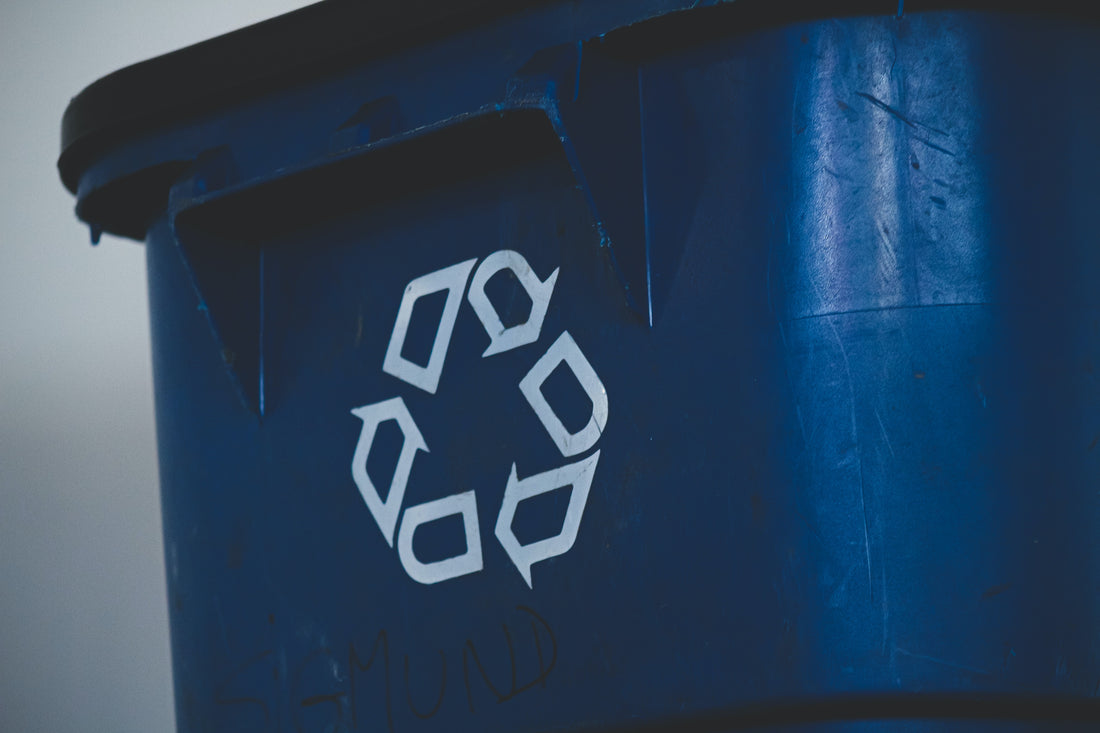In the run-up to COP26, Boris Johnson has made the astonishing admission that plastics recycling is broken and that it was a "mistake" to think society can recycle its way out of the problem, adding "It doesn't work."
Well, he's called this one right! Here at Bower Collective, our core mission is to help our customers eliminate plastic waste and create a more sustainable world. We achieve this through selling a range of plastic-free products and also shipping our core Bower range in our reuse and refill packaging system.
From time to time we get asked questions either directly via email or through our social media community, along the lines of: “But hang on, I recycle all my household plastics, so why is it any better to use your refill system when all my products are recyclable anyway?”
That’s a completely reasonable question to ask! The answer, as you might expect, is more complex.
When we were designing all of our products and packaging before we launched Bower, we went deep into the murky world of recycling. What we discovered there was pretty shocking - in summary, the system is truly broken.
Let’s look at some of the facts:
- When a brand says, this item is 100% recyclable, it doesn’t mean much. Just because it can be recycled doesn’t mean that it ever will be!
- The UK Government claims that 46% of UK household plastic waste is recycled. Sadly, the real number is less than 10%. Most of the waste is still being exported, sent to landfill or incinerated. The 46% figure refers to the amount of waste collected from the kerbside, which is completely misleading.
- Most recycling data is reliant on the waste export market, previously South East Asia, now closer to home with Turkey receiving well over 25% of all our exported plastic waste, with limited capability to deal with it.
- Most local authorities now have long term contracts with waste-to-energy incineration plants that have serious carbon emission issues that contribute directly to the climate crisis.
So we stand by our founding mission, that recycling is broken and that there needs to be a better way to consume products. You may (or may not!) have heard of the waste hierarchy, which looks like this:

Reusing materials is infinitely better than recycling, particularly if you design a system where you minimise the risk of materials falling outside of your control. Now we know our system is not perfect but we ship reusable materials to you, our customers, with a pre-paid returns envelope, and we guarantee that 100% of those materials will be reused or properly recycled with our specialist partner.
In a few months time we will be launching our new packaging, in which each pack will have a unique digital ID so we (and you) can track how many times it has been reused, how much waste has been saved and how much carbon has been reduced from avoiding single use disposable materials. Watch this space!
As always we are open to the conversation, and happy to share our data sources and deeper thinking on why we do what we do. We don’t want to discourage you from recycling, far from it! But it does help to be equipped with the facts so we can all make better choices every day.
Sources/ References
‘[The UK’s recycling system] appears to have evolved into a comfortable way for government to meet targets without facing up to the underlying recycling issues. The government has no evidence that the system has encouraged companies to minimise packaging or make it easy to recycle. And it relies on exporting materials to other parts of the world without adequate checks to ensure this material is actually recycled, and without consideration of whether other countries will continue to accept it in the long term.’
National Audit Office, July 2018 - ‘The packaging recycling obligations’ www.nao.org.uk/report/the-packaging-recycling-obligations/
Greenpeace “Trashed” Report, April 2021.
Eunomia Research & Consulting (2018) ‘Plastic packaging: Shedding light on the UK data’ www.eunomia.co.uk/reports-tools/plastic-packaging-sheddinglight-on-the-uk-data/ p8
RECOUP (2020) ‘UK plastics reprocessing capacity needs to double by 2022’ 21 August 2020 www.recoup.org/news/8052/uk-plastics-reprocessing-capacity-needs-to-double-by-2022.
